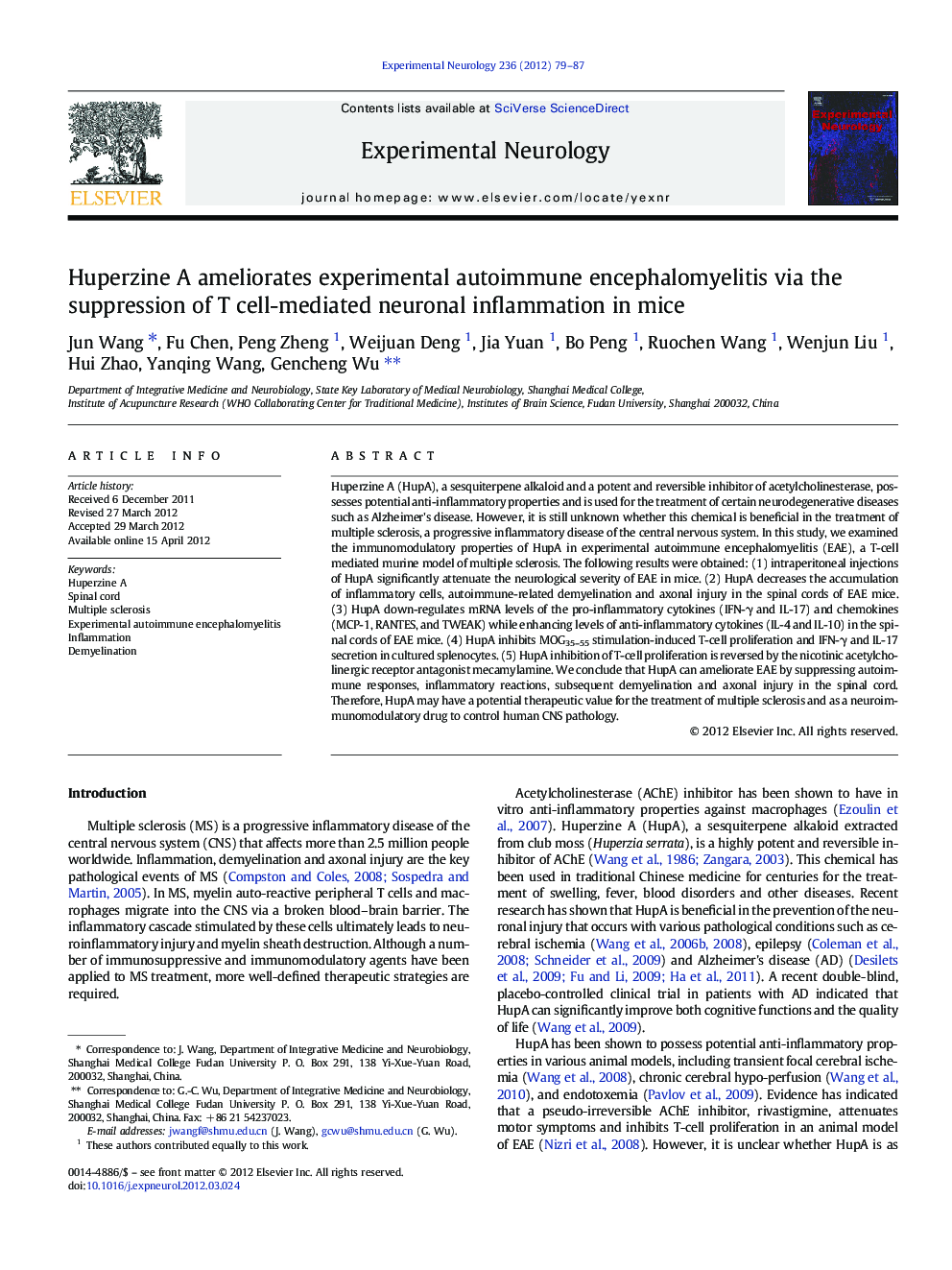| Article ID | Journal | Published Year | Pages | File Type |
|---|---|---|---|---|
| 3055668 | Experimental Neurology | 2012 | 9 Pages |
Huperzine A (HupA), a sesquiterpene alkaloid and a potent and reversible inhibitor of acetylcholinesterase, possesses potential anti-inflammatory properties and is used for the treatment of certain neurodegenerative diseases such as Alzheimer's disease. However, it is still unknown whether this chemical is beneficial in the treatment of multiple sclerosis, a progressive inflammatory disease of the central nervous system. In this study, we examined the immunomodulatory properties of HupA in experimental autoimmune encephalomyelitis (EAE), a T-cell mediated murine model of multiple sclerosis. The following results were obtained: (1) intraperitoneal injections of HupA significantly attenuate the neurological severity of EAE in mice. (2) HupA decreases the accumulation of inflammatory cells, autoimmune-related demyelination and axonal injury in the spinal cords of EAE mice. (3) HupA down-regulates mRNA levels of the pro-inflammatory cytokines (IFN-γ and IL-17) and chemokines (MCP-1, RANTES, and TWEAK) while enhancing levels of anti-inflammatory cytokines (IL-4 and IL-10) in the spinal cords of EAE mice. (4) HupA inhibits MOG35–55 stimulation-induced T-cell proliferation and IFN-γ and IL-17 secretion in cultured splenocytes. (5) HupA inhibition of T-cell proliferation is reversed by the nicotinic acetylcholinergic receptor antagonist mecamylamine. We conclude that HupA can ameliorate EAE by suppressing autoimmune responses, inflammatory reactions, subsequent demyelination and axonal injury in the spinal cord. Therefore, HupA may have a potential therapeutic value for the treatment of multiple sclerosis and as a neuroimmunomodulatory drug to control human CNS pathology.
► Huperzine A (HupA) significantly attenuates the neurological severity of EAE in mice. ► HupA decreases the inflammatory cell infiltration and axon damage in the spinal cord. ► HupA regulates the pro- and anti-inflammatory cytokines expression in spinal cords. ► HupA inhibits encephalomyelitis T-cell proliferation which is mediated by nAChR. ► HupA may be of potential therapeutic values for the treatment of autoimmune diseases.
